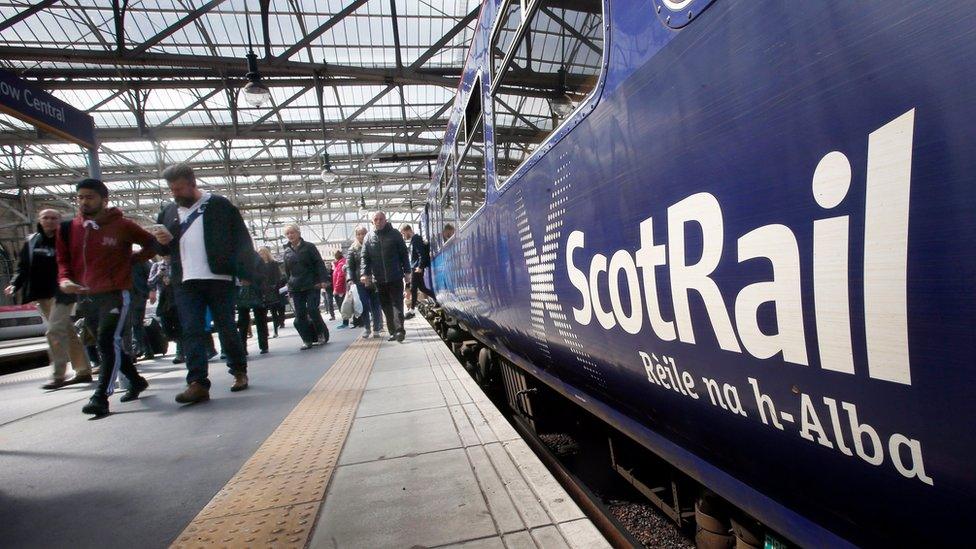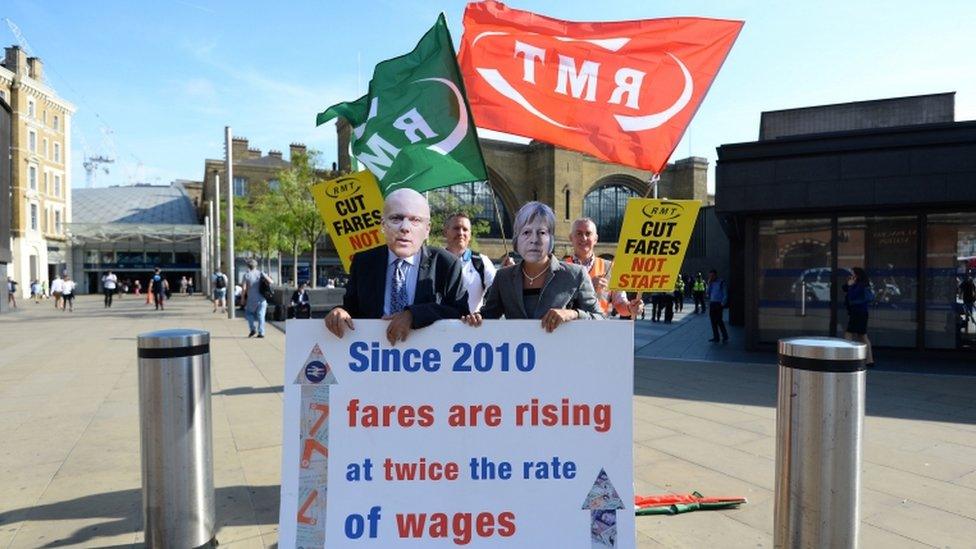Scottish train ticket prices to rise in January 2019
- Published
- comments

Rail fares in Scotland are to go up in January 2019, although rises will be restricted for off-peak tickets.
Peak fares will increase by 3.2% next year, mirroring the retail price index (RPI) rate of inflation.
All regulated fares in England and Wales are set to go up in line with this rate.
However the rise in off-peak fares north of the border will be held at 2.2%, as the government has pledged to cap them at 1% below inflation.
Transport Secretary Michael Matheson said fare increases were "unwelcome", but stressed that action had been taken to minimise them.
Staff from rail union RMT staged protests in cities around the UK, including several in Scotland, saying ticket prices were rising "twice as fast as wages".
The increases in regulated fares are aligned to the RPI inflation rate, a measure of inflation that tracks the change in a sample basket of goods and services.
The RMT argues that a different rate of inflation - the consumer price index (CPI) - should be used instead.
However, they note that even with this more modest rate, currently at 2.5%, fare changes would still "massively outstrip wages".

The RMT union organised protests outside train stations across the UK
Using the rates announced on Wednesday, an anytime single between Edinburgh and Glasgow, which currently costs £14.40, will rise to £14.86.
An off-peak single on the same route, currently costing £12.90, will rise to £13.18.
An anytime return between Aberdeen and Dundee will go from £38.40 to £39.63, while an off-peak return on the same route will rise from £30.90 to £31.58.
'Cash cow'
Mr Matheson said: "The Scottish government recognises that fares increases are unwelcome. That is why we have taken action to minimise these."
He added: "This means in Scotland average fares increases are lower than England and Wales, where the UK government applies an increase equivalent to RPI to all regulated fares.
"While passengers make a contribution towards the cost of running the railway through rail fares, in Scotland the majority of rail service costs are met by government subsidy."
Mick Cash, general secretary of the RMT union, said it was "nothing short of a scandal" that ticket prices were "up to five times more than fares in Europe, and rising twice as fast as wages".
He said: "Even if fares were pegged at the more modest CPI, these latest increases would still massively outstrip wages leaving the British passenger to pay through the nose to travel on rammed out and unreliable services.
"Meanwhile the rail companies, the majority of whom are foreign state owned, are using the British transport system as a cash-cow to hold down their own domestic fares. That is a nonsense and must be stopped."